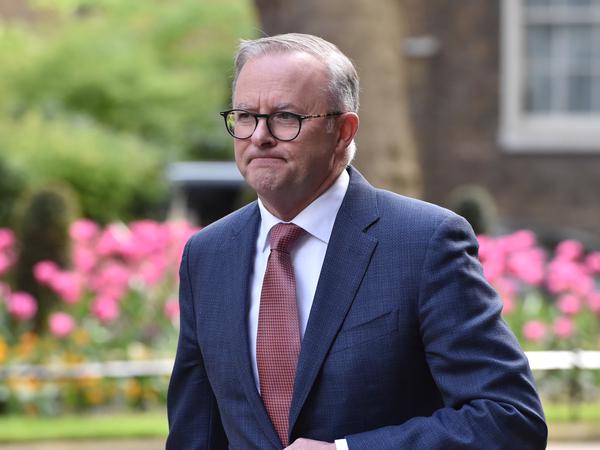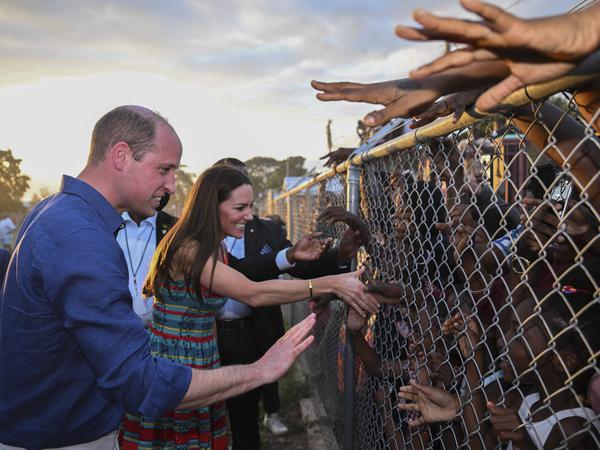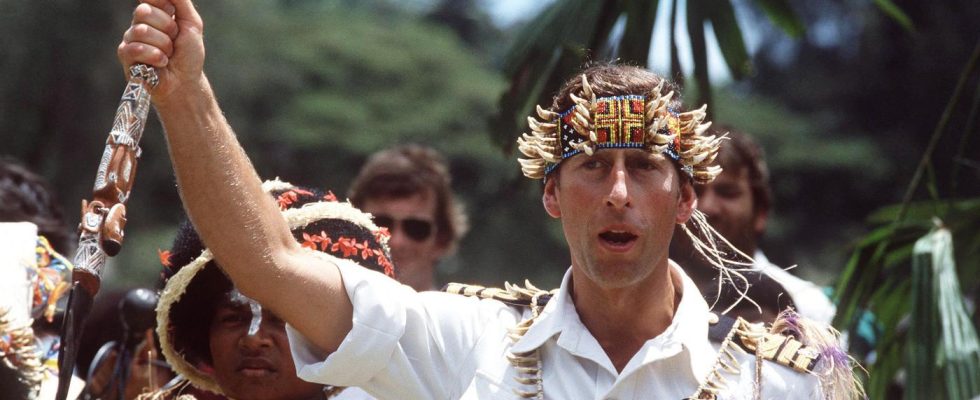From the inheritance of the ancestors there isn’t much left. While Queen Victoria proudly called herself the “Empress of India” in the 19th century and ruled over a real empire as a monarch, from the Caribbean to the South Seas, the new King Charles had to be satisfied with far less.
Instead of the “Empire”, the king only presides over a relic from the colonial era: the Commonwealth. Politically, Charles hardly plays a role for the 56 sovereign member states, only 15 of them still accept him as head of state. The organization still means a lot to him. “The Commonwealth has been an important part of my life for as long as I can remember,” he once said.
What will the new king do with his state club? As Prince of Wales, he was seen as a reformer who wished for a modern monarchy. Now he could also initiate changes in the Commonwealth. However, the relationship between member states and the Crown is complicated. People are attached to one another, but in many countries people also look critically at Great Britain.
“There is no country in the Commonwealth in which there are no visible withdrawal movements in civil society,” says colonialism researcher Jürgen Zimmerer from the University of Hamburg. “Many are fed up with the white, imperial worldview, which sees the Commonwealth headed by a white king.”
money from the slave trade
For example, the Caribbean island of Barbados declared itself a republic in 2021, and there are similar efforts in other ex-colonies. Charles himself should therefore have an interest in keeping the rest of the former empire together – and not dealing with it too critically. He initiated research into his country’s colonial past. However, he does not speak about the Windsors’ private fortune, which comes from the slave trade, among other things.
There isn’t a country in the Commonwealth where there aren’t visible displacement movements in civil society.
Jurgen Zimmererhistorian
“Charles would hardly be able to do a critical appraisal of colonialism and question the Commonwealth,” says Zimmerer. This also has to do with the “imperial nostalgia” popular in Great Britain, which is evident in Brexit, for example. “Britain is also clinging to the Commonwealth and the pomp of the pseudo-imperial monarchy because it believes it can preserve a long-forgotten status in the world,” says the history professor.
The governments in the Commonwealth countries also benefited from this, “because membership makes them more visible on the world stage,” as Zimmerer says. Today, the post-colonial structures benefit the elites. “People live in poverty, while the rich look to Britain and send their children to Oxford, for example, to study.”
Kenya: Forget nothing, forgive nothing
In East African Kenya, the traces of colonialism are omnipresent. If you walk through the green posh district of Kileleshwa in the capital Nairobi, you will find large properties behind high hedges. On it you can see well-preserved villas in English country style, which could just as well be in Sussex or Kent. Except that here mango trees grow in the garden.
In the past, blacks were only allowed as servants in these houses of the colonial masters, today the Kenyan upper class lives here.
The people of the country are cultivating the colonial legacy – they have no other choice. Today’s relationship with Britain is good. Many have relatives who go to England to work or study. The governments are close. The common language helps. The people of Kenya have long since made this their own. Today, Nairobi speaks Sheng, a modern mixture of Swahili and English.
There is no trace of the transfiguration of the old days here. People remember the brutal violence of the British too well – how they depopulated entire regions in the “Mau Mau War”, how they crammed thousands into concentration camps, how they murdered and raped. At the beginning of the war Charles’ mother Elizabeth was staying at the family estate in the “White Highlands” on a fishing holiday. She never distanced herself from the colonial crimes committed in the name of the crown.
When the Queen died in September 2022, critical remembrance outweighed grief over the monarch’s death in Kenya. And so the coronation of the new king is unlikely to interest most people in the East African country.
New Zealand and Australia: Still there, but not forever
1999 was a disappointing year for Republicans in Australia. A long-prepared referendum on the continent should finally clarify whether the Australians want to change their constitution and abolish the monarchy. The request failed – and the withdrawal movement from the British crown became quieter for a few years.

Recently, however, the topic has again become the focus of Australian politics. Shortly after taking office, Labor Prime Minister Anthony Albanese appointed a Republican Commissioner who, following the death of Queen Elizabeth II, was already planning Australia’s future as a republic. “The Elizabethan age is over, now it’s time for us to enter the Australian age,” Matt Thislethwaite told Time magazine.
43
percent of Australians recently spoke out in favor of the transition to the republic.
And yet Australians seem undecided at the moment. In a poll taken shortly after the Queen’s death, less than half (43 percent) supported Australia as a republic. And Prime Minister Albanese also said last week with a view to the coronation of Charles III that there would be no new referendum in the near future. In addition, he himself will swear allegiance to the new king in a ceremony in Westminster, even though he had been a “republican all his life”.
Albanese’s New Zealand colleague Chris Hipkins sees it similarly. While he hopes that his country future will become an independent state “standing on its own two feet,” Hipkins said at a press conference. However, there are currently no immediate plans to break away from the monarchy.
Jamaica: Black suffering for white pleasure
In 2022, a year after Barbados seceded from the British Crown, William and Kate were set to bring calm to the rest of the Caribbean Commonwealth. With a charm offensive, they not only wanted to gain membership in the confederation, but also to advertise the British monarch as head of state, especially in Jamaica.
The then second in line to the throne did not succeed. A day before William and Kate’s arrival, 100 politicians and cultural figures sent an open letter demanding an apology for “Britain’s crimes against humanity”.
This is necessary in order to be able to initiate a “healing process” for the “exploitation of the indigenous population of Jamaica, the transatlantic human trafficking in Africans” within the framework of royal colonial rule.

In the mid-17th century, the British conquered the small Caribbean state from the Spanish on the orders of Charles’ ancestors. Jamaica became the English Sugar Island, soon the richest colony in the Empire. Sugar mining, which was made cheap by exploitation, turned the country into a mine from which Great Britain could draw enormous wealth – and the royal family benefited.
The British crown sent about a million Africans from their other colonies to Jamaica alone, where they had to work under the harshest living conditions. Samuel Sharpe, a leader of insurgents on the island, was brutally executed by the British. Today he is one of the seven national heroes of Jamaica.
But William did not want to apologize for this during his visit in 2022. In his speech to the Jamaican prime minister, he spoke of the “appalling atrocities” and “deep sadness.” Slavery, William said, “was abominable and should never have happened”.
That did not convince the head of government. On the same day it was announced that the government was already planning to secede from the British crown. By 2024 at the latest, a referendum should be held on whether the Caribbean state should become a republic.

